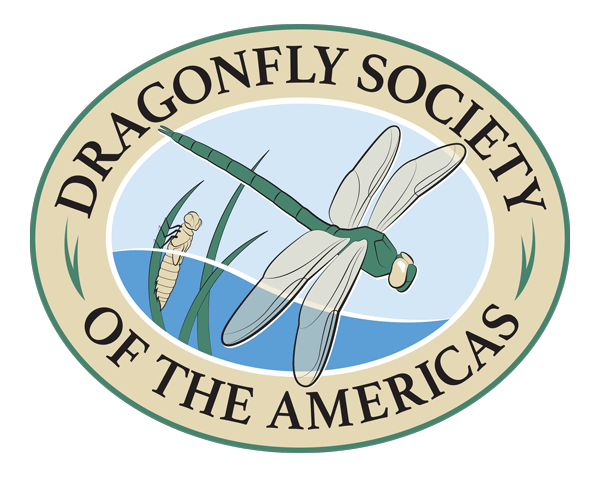Odonate Research Grant Program
Grant Description
The DSA Odonate Research Grant Program awards small grants (up to $1000) to help pay expenses for odonate research in the DSA focal region (New World). Last year, three awards were made; please see ARGIA Vol. 32, No. 2, p. 1 (March 2020) for more information. A committee (Nancy McIntyre [chair], Steve Collins, Chris Hill, Buck Snelson) will evaluate grant proposals for 2025 on the basis of scientific importance, feasibility, and clarity.
Instructions on how to apply are found in the members area.
Please consider donating to support the DSA Odonate Research Grant Program!
Frequently Asked Questions
Frequently Asked Questions
Q. Who is eligible to apply for a grant?
A. Any member of DSA is eligible! (In previous years, grants were restricted to U.S. residents; we now are able to extend grants to non-U.S. members. DSA will use Paypal and cover the modest international payment transfer fee.)
Q. New for 2021: What makes for a successful proposal?
A. Past grants that have received funding have had a compelling argument about the broad importance of the proposed work, clearly articulated objectives, and a plan of work that was appropriate towards meeting those objectives. For applicants for whom English is not their native language, we strongly suggest having your proposal proof-read prior to submitting it. As of last year, we provide feedback to each proposal that was not recommended for funding.
Q. Can a person who has received a DSA grant in the past be eligible in the future?
A. Yes, recipients can receive multiple grants as long as the obligations outlined below are met for each grant.
Q. How much can be requested, and how many grants will be awarded?
A. The maximum amount that can be requested is US $1000. We will dispense no more than $3000/year, so the number of awards each year will depend on the number of meritorious proposals received and the amounts requested by those proposals.
Q. How will the funds be awarded, and are there any restrictions on what can be covered?
A. Awards will be made by Paypal. Because DSA is a non-profit organization, awards cannot be used for salary (can only be used for travel, services, supplies, or equipment).
Q. What obligations are associated with receiving a grant?
A. Awardees must submit a progress report to the DSA Executive Committee within two years of the grant award; failure to do so will render the recipient ineligible for any future DSA grants. Awardees are strongly encouraged to give a presentation at a DSA meeting or submit a paper to ARGIA or the Bulletin of Odonatology within two years of project completion.
Q. How can I donate to the DSA Odonate Research Grant Program?
A. Please contact the DSA Treasurer at treasurer@dragonflysocietyamericas.org. Thank you for your support of this program, which is made possible by donations from our members!
Past Recipients
2025
Yusdiel Torres: Recovering the Cuban national damselfly
Florencia Andechaga: Diversity and conservation of the order Odonata (Class: Insecta) in the Pampas of Argentina
Christiana Mojica: Revitalizing the San Diego Natural History Museum's Unique Odonata Collection Through Digitization and Rehousing
2024
Stephanie Allen: Phenology, imperfect detection, and habitat occupancy of three endangered riverine dragonflies: Implications for monitoring and conservation.
Peter Dixon: Southern Appalachians Clubtail Mapping Project
Ethan Tolman: Identifying the genomic basis of semi-terrestriality in petaltail dragonflies (Anisoptera: Petaluridae)
Jordi Vilanova i Broto: Is dragonfly fecal content a viable alternative to eDNA and malaise trap to sample flying insects?
Dylan Powell: The effect of early life stage competition between Enallagma signatum and Western mosquitofish (Gambusia affinis) on intraguild predation later in ontogeny
2023
Yiselle Cano Cobos. Phylogenetic systematics of Oxyagrion and Acanthagrion (Odonata: Coenagrionidae) using a combined approach of molecular and morphological data.
Ana M. Hernandez Vazquez. Abundance, population genetic and ecological aspects of the endemic species Protoneura capilaris, Neoneura maria and Neoneura carnatica in western Cuba.
Cristian Mendoza. Morphological and molecular analysis of the tenuissima group species complex (Coenagrionidae: Psaironeura): cryptic diversity or high morphological variability?
Emily Schilling. Piecing together the migration pathway of Aeshna canadensis (Canada darner) dragonflies.
2022
Angel Solis: Seasonal migration of two Odonata species from north to south, Pantala flavescens and P. hymenea, in a biogeographical bridge.
Daniela Ayala Sánchez: Genetic and morphological analysis to clarify phylogenetic relationship within Euthore Selys, 1869 (Odonata: Polythoridae).
Hanna Wojtysiak: Nymphal habitat selection in the Calverts Emerald, Stomachlora calverti (Odonata: Corduliidae).

